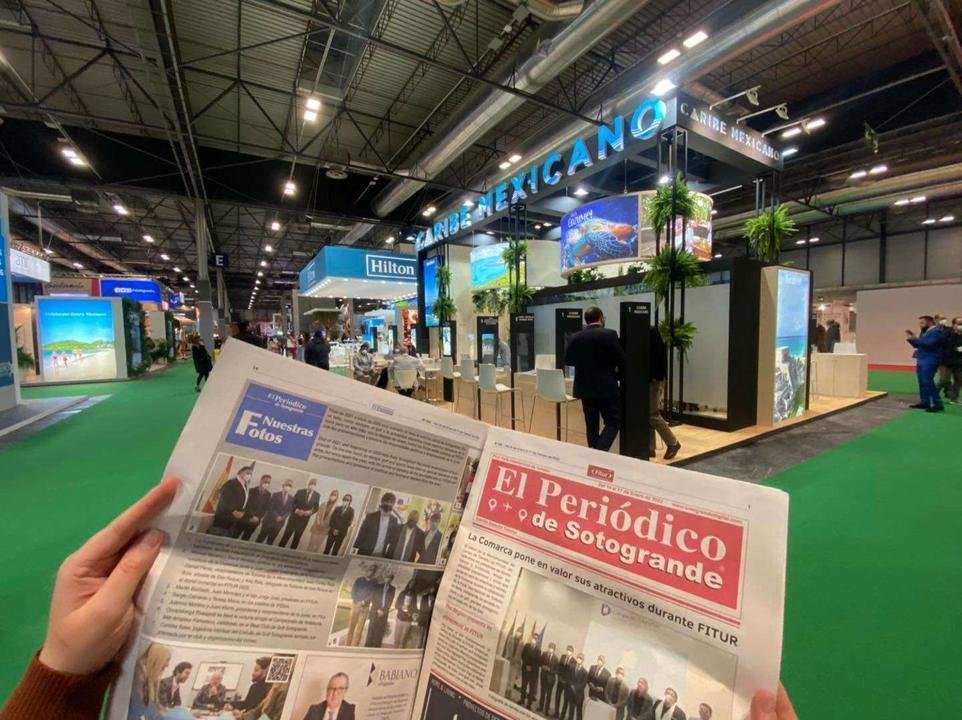Turismo: consolidar la recuperación, por Carlos Rodríguez Braun

El turismo volvió a ponerse en marcha en 2021, y se espera que la recuperación se consolide en 2022.
Fitur refleja esta evolución optimista, y ha vuelto a celebrarse de manera presencial en el recinto ferial de Ifema en Madrid –ajustándose también a la tradición de celebrarse a comienzos de año, durante los meses de enero o febrero, mientras que en 2021 tuvo lugar en mayo y de forma híbrida, presencial y virtual.
 Carlos Rodríguez Braun
Carlos Rodríguez BraunEste panorama halagüeño no significa que el turismo haya vuelto a su situación prepandémica, algo que la asociación Exceltur no prevé que pueda suceder antes de la segunda mitad de 2023. No se puede olvidar que el sector fue el más golpeado por el coronavirus, una amenaza que no ha desaparecido, ni mucho menos, como hemos visto recientemente, con brotes en cruceros en algunos países. El impacto de la crisis sobre el empleo fue considerable: más de la mitad de los trabajadores acogidos a ERTE están vinculados con el turismo. La reforma laboral del Gobierno también preocupa a las empresas, en una actividad que por su naturaleza registra elevados niveles de temporalidad.
Con todo esto dicho, sin embargo, las altas tasas de vacunación a las que hemos llegado, la menor letalidad de la variante ómicron, y la reactivación de la economía, han mejorado las expectativas de manera notable, tanto en lo referido a la llegada de visitantes extranjeros a España como en lo correspondiente al turismo nacional.
En estas condiciones, se entienden las opiniones optimistas de los empresarios, que apuntan a una excelente temporada de verano. Algunos hablan incluso de boom turístico después de Semana Santa.
Un aspecto importante es el cambio registrado en los criterios de la política sanitaria. La idea de que hay que cerrar toda la economía ante la presencia de un virus, que fue considerada poco menos que una verdad revelada, ahora es puesta cada vez más en cuestión. Las autoridades de Estados Unidos y otros países se están aproximando a lo que anteriormente pocos políticos defendían: mantener la economía funcionando mientras se lucha contra el virus.
 Fitur 2022
Fitur 2022Tourism: consolidating the recovery
Carlos Rodríguez Braun
Tourism got underway again in 2021, and it is hoped that the recovery will be consolidated in 2022.
Fitur reflects this optimistic progress, and has once again taken place with people present at the Ifema fair enclosure in Madrid -also fulfilling the tradition of taking place at the start of the year, during the months of January or February, while in 2021 it took place in May, and in a hybrid way, both in person and virtually.
This promising panorama doesn´t mean that tourism has returned to its pre-pandemic situation, something that the Exceltur association doesn´t expect to happen before the second half of 2023. It cannot be forgotten that the sector was the most badly hit by coronavirus a threat that hasn´t disappeared, not at all, as we have seen recently, with outbreaks on cruise ships in some countries. The impact on the employment crisis was considerable: more than half of the workers in temporary redundancy plans are linked to tourism. The Government´s labour reform is also worrying companies, in an activity that, due to its nature, has high levels of seasonal work.
However, having said all this, the high vaccination levels we have reached, the lower lethality level of the omicron variant, and the reactivation of the economy have considerably improved expectations, both in relation to the arrival of foreign visitors in Spain and in relation to national tourism.
Under these conditions, the optimistic opinions of business people are understandable, pointing to an excellent summer season. Some people are even talking about a tourist boom after Holy Week.
One important aspect is the change recorded in the criteria of the health policy. The idea that it is necessary to shut down the entire economy when faced with a view, which was considered little less than a revealed truth, is now being increasingly questioned. The authorities in the United States and other countries are approaching what few politicians previously defended: keeping the economy working while fighting against the virus.
